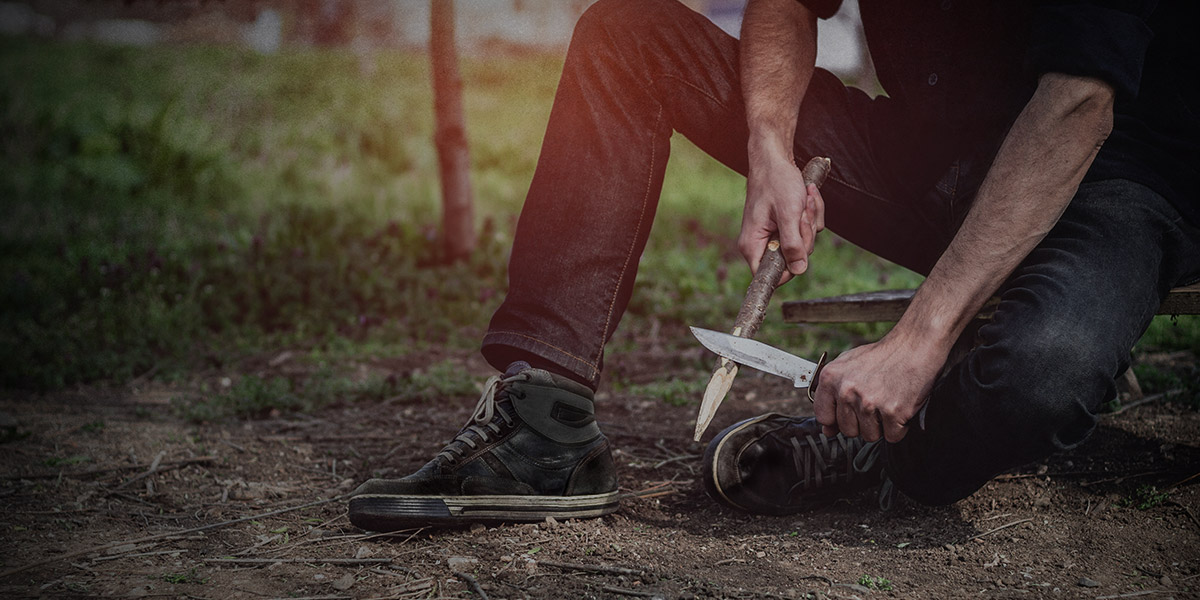There is a long list of tools for survival, but the most important one is not something you can buy from a store.
The three-pound tool that rests between your ears is the most crucial survival tool you will rely on in any situation. Your mind! It is the core of any successful preparedness strategy, but it is frequently disregarded.
If you lose your mental edge during a crisis and go into panic mode, nothing else you’ve physically prepared will help. Your mind is more valuable than a Swiss army knife, marketable precious metals, or even duct tape!
Fortunately, you may strengthen this mental muscle now, before an emergency occurs, and achieve greater stability and self-reliance through difficult circumstances. You can also utilize it to improve your life when things are going well.
Your emotional reaction to a catastrophe, whether natural or man-made, influences how you survive and even your health years later. For example, one study we read discovered that a substantial number of young children who suffered serious mental disruption as a result of Hurricane Katrina exactly 18 years ago continue to suffer from the experience as teens years later.
Living in high-stress circumstances can have severe emotional consequences. Even moderate stress, on the other hand, can be damaging over time.
Keeping it together mentally is critical in good times, fiscally unstable times, and especially in an emergency crisis, no matter the cause.
Trigger warning: s u i c i d e
According to the CDC, suicide rates increased approximately 36% between 2000–2021. Suicide was responsible for 48,183 deaths in 2021, which is about one death every 11 minutes. The number of people who think about or attempt suicide is even higher. In 2021, an estimated 12.3 million American adults seriously thought about suicide, 3.5 million planned a suicide attempt, and 1.7 million attempted suicide.
Don’t be part of the statistics. Take care of that tool.
Now, here are two methods you can use to strengthen your fierce mental resolve in tough times; and if you’re lucky enough to avoid long-term crisis, then these tips can help you get even more out life.
Rest
Learning to relax is one of the most effective strategies to boost your cognitive and emotional response to stressful events. This provides you with a safe haven to hide away and rest, even if only for a few period. Many people either freeze and shut down in response to a high-stress event, or they do the opposite. Overreact and flee in a panic.
Neither of these options is in your best interests. It’s important to stay in the middle and utilize cool, logical thinking to solve your difficulties.
Learning and practicing meditation, yoga, or another comparable activity will help you build on-demand peace and relaxation. It allows you to relax and concentrate yourself.
Be Trained
Regardless of your age or condition, having a personal trainer is always beneficial, whether for health, finances, or disaster preparedness. Your local YMCA most likely has qualified trainers who can assist you. It’s all about preparing your body and mind for adversity. Including the inevitable adversities of old age!
The more individuals get older, the more they seek personal comfort. Resist that urge as long as you can, since once it takes over, you’ll be much closer to the end. Getting out of your comfort zone on a regular basis is consequently essential as you age.
Prepare. Prepare.
“Be Prepared” is the catchphrase of the Boy Scouts. Organizations worldwide that stress self-reliance, independence, adaptation, caution, and the ability to think fast on your feet have utilized similar mottos.
Knowing the abilities that can help you survive without public utilities or contemporary services, or when exposed in the woods, is part of being mentally prepared, whether you’re an experienced “prepper” or just starting started.
This leads to competency, which boosts your confidence and mental fortitude when things go tough. You know you can handle it.
The best thing you can do is take charge while learning new crisis and emergency preparedness skills and sharing them with others you care about – and you can learn them all here with me.

